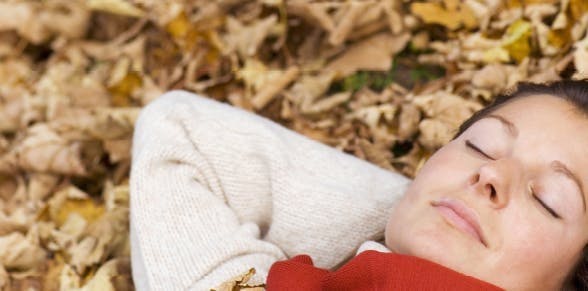4 Ways To Minimize Seasonal Impact On Your Sleep
Changing seasons can have an effect on how well you sleep. Here’s how to make sure you’re still getting enough rest.
Manage your exposure to light. While some researchers stress the importance of sunlight for its role in the body’s production of vitamin D, others will implore you to stay out of the sun to avoid skin cancer. How much sun exposure you should get depends on a variety of factors, including skin tone, geographic location, and more. During the winter months, make a point to get outside when you can, even if it’s just to grab a coffee.
"Office workers who received higher white light exposure slept better..."
If you can’t get outside during the day much (hello, anyone in an office), try to snag a seat near the window instead. In one study, office workers who reported sitting near windows received higher white light exposure and also slept better than those who didn’t have windows nearby. Alternatively, to keep excess light at bay when you’re trying to sleep in the summer, use blackout blinds or an eye mask.
Minimize the effects of both outdoor allergies and allergens during peak seasons.
Managing your allergies well is the key to good sleep during peak allergy season. Keep your environment clean with a HEPA air filter or air purifier. Try taking a shower before bed to wash any allergens off your body and out of your hair, and shut any windows to limit allergens coming in.
Set a regular sleep schedule year-round.
Think about going to bed the way you would waking up—at the same time each day. You’ll have more restful nights, according to an article from Harvard Medical School.
Manage your pain.
Whether it’s more outdoor exercise in the summer or shoveling your car out from a blizzard in the winter, pain is something you can feel year-round. A nighttime pain reliever can help relieve the pain that’s keeping you awake and help you get a better night’s sleep.
© Meredith Corporation, all rights reserved








